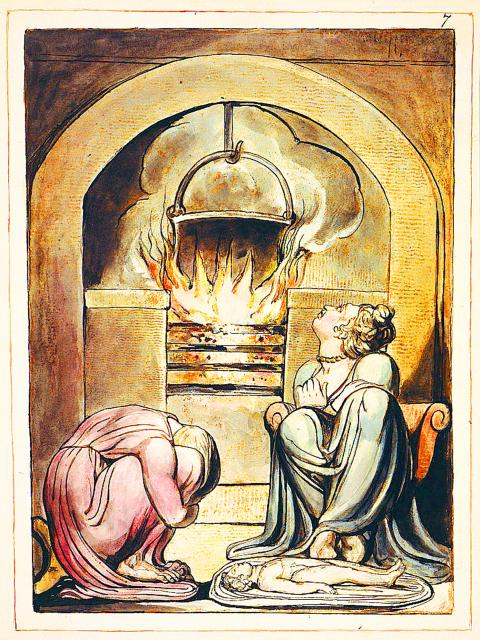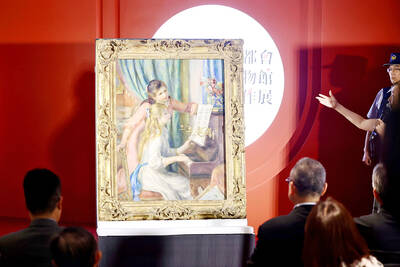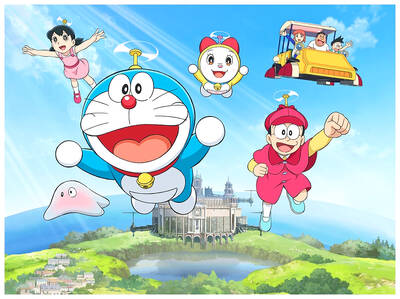Chinese practice
釜底抽薪
(fu2 di3 chou1 xin1)

Photo: Wikimedia Commons
照片:維基共享資源
remove firewood from under the cauldron
成語「釜底抽薪」中的「釜」,是古代的一種烹飪器具,也就是現在所說的鍋子;而「薪」則是柴火。「釜底抽薪」的字面意義為,從鍋底抽掉柴火,用來比喻從根本上解決問題。其意旨或許要跟與它相對的另一個成語「揚湯止沸」相比較,才能更加凸顯。「揚湯止沸」意為將鍋中的沸水舀起,再倒回去,以止住沸騰,比喻只是暫時紓解困境,但無法根本解決問題。
這兩個成語一般認為皆出自《呂氏春秋》的〈季春紀.盡數〉。該篇談到養生之道,批評當時的社會崇尚占卜祈禱,反而造成愈來愈多的疾病。這就像是射箭的人沒射中箭靶,卻不思糾正自己的毛病,反而去修正箭靶的位置──這對要射中目標能有什麼幫助?文章接著以比喻說道:「夫以湯止沸,沸愈不止,去其火則止矣。故巫醫毒藥,逐除治之.故古之人賤之也,為其末也。」(用燒滾的水阻止水的沸騰,沸騰越發不能阻止,撤去其下的火,沸騰自然就止住了。巫醫、藥物的作用只是驅鬼治病,所以古人輕視這些東西。因為這些東西對於養生來說只是枝微末節啊!)
用英語來說,我們可以說這是解決問題的根源(getting to the root of a problem),或從源頭上解決問題(approaching the problem from its source)。「釜底抽薪」有時可英譯為「pulling the rug from under one’s feet」(從某人腳下扯地毯)。「釜底抽薪」和「pulling the rug from under one’s feet」這兩種習語的確都產生了強烈且可立即理解的意象,但須注意的是,這兩者的用法並不完全相同:pull the rug [out] from under one’s feet(將地毯從人的腳下拉出來)比較是指突然撤回對某人的支持,或是扣留、拒絕給予對方所依賴的或一心以為可以仰賴的事物。
(台北時報林俐凱譯)
面對全球塑膠廢棄物氾濫的問題,釜底抽薪之計便是從源頭上控管,禁止商家提供塑膠袋。
(The most direct way to address the global plastic waste crisis is to go to the source of the problem and ban businesses from providing plastic bags.)
若要落實保育,禁止獵捕鯊魚只是揚湯止沸,禁止食用魚翅才是釜底抽薪。
(If we are going to protect sharks, a simple ban on catching them isn’t going to cut it; we need to ban the consumption of shark’s fin.)
英文練習
pull the rug from under somebody’s feet
The character 釜 in the idiom 釜底抽薪 refers to a vessel used to cook food in ancient times, and still refers to a cooking pot or cauldron today. The character 薪 means firewood. The literal meaning of the idiom is to pull the firewood from under the cauldron and, by extension, is a metaphor for solving a problem by removing the thing causing it to persist. For its usage we can perhaps compare it to another idiom, 揚湯止沸, which implies quite the opposite. The literal meaning of 揚湯止沸 is to spoon boiling liquid from a cauldron, and then to pour it back in, to keep the ferocity of the boil under control. Unlike 釜底抽薪, this idiom means deciding upon a temporary solution that mitigates a problem without being able to resolve it.
These two idioms are generally thought to derive from the jinshu section of the jichun ji chapter of the Warring States period encyclopedic text lushi chunqiu (Annals of Master Lu). This section discusses the way to cultivate a healthy life, and is critical of how, at the time, people believed in divination and praying to the ancestors to solve problems, but how this reliance only exacerbated the incidence of disease. The text likens this to an archer who cannot hit a target but, rather than look to improving his own shortcomings, decides instead to move the position of the target. It asks whether this is really of any help to the archer’s ability to hit the target? It goes on to use a metaphor, saying 夫以湯止沸,沸愈不止,去其火則止矣 (It’s like using boiling water to control boiling: the more one tries, the more impossible it becomes. If, however, one removes the fire from under the water, then the boiling will naturally abate), and continues “Shamen and their medicine could only seek to cure illness by driving out evil spirits, so the ancients did not put much faith in them. Such approaches were good for little more than helping the superficial symptoms.”
In English, we can talk of getting to the root of a problem, or approaching the problem from its source. The idiom 釜底抽薪 is sometimes translated as “pulling the rug from under one’s feet.” The two idioms do, indeed, elicit a strong and an immediately understandable image, but the usage differs: To pull the rug [out] from under somebody’s feet is to suddenly withdraw support for somebody, or to withhold or deny something that they had relied upon, or fully expected to be able to count on.
(Paul Cooper, Taipei Times)
The decision to cut health benefits for immigrants has really pulled the rug out from under the feet of many who are already struggling.
(政府決定削減移民的健保福利,這讓很多已陷入困境的移民頓失所依。)
If he doesn’t start working faster we’ll have to cut his bonus. That will pull the rug from under his feet.
(如果他不開始加緊腳步工作,我們會扣他的獎金,這對他會是當頭棒喝。)

A: The National Palace Museum (NPM) has launched an exhibition, titled “From Impressionism to Early Modernism.” There are 81 masterpieces from the Metropolitan Museum of Art on display now. B: The exhibit, held to celebrate the NPM’s centennial, must be so spectacular. A: It includes artworks by 38 artists, such as Renoir, van Gogh, Cezanne, Matisse and Gauguin. B: The Fubon Art Museum has also launched an exhibit featuring a number of artworks of Impressionism, including Monet’s “Water Lilies.” A: And the New Taipei City Art Museum just had its grand opening, so there are even more exhibitions

A: What exhibitions are you going to see this summer? B: The 100% Doraemon & Friends exhibit is set to open on June 28. A: The news says there will be a 12-meter-tall giant Doraemon model at the Huashan 1914 Creative Park. B: The One Piece Carnival will set sail on the same day. A: And the D’festa Taipei 2025 – featuring exclusive content from K-pop supergroups such as BTS, NCT and Twice – is also set to begin next Friday. Isn’t that cool? A: 今年夏天還有什麼展覽可看啊? B: 「100%哆啦A夢 & Friends特展」即將在6月28日開幕。 A: 新聞說在華山1914文創園區會場,還有12米高的巨型哆啦A夢呢! B: 航海王「One Piece歡樂派對嘉年華」也將在同日啟航。 A:

The new generation born between 2025 and 2039 has been officially named “Generation Beta,” or simply “Gen Beta.” This generation will be the first to experience a world where artificial intelligence (AI) plays a key role in daily life. Generations are defined by shared cultural, social and historical experiences within a specific time frame. These experiences, often influenced by significant events and technological advancements, shape the values, attitudes and behaviors of each generation. The concept of generations helps us understand how different age groups interact with their environment and contribute to societal changes over time. The previous generational transition from Gen

Continued from yesterday(延續自昨日) https://www.taipeitimes.com/News/lang As Gen Beta grows, they are expected to witness advanced technologies becoming fully integrated into various fields like education, workplaces, healthcare and entertainment. In addition to technological developments, they will also face big challenges like severe climate change. Influenced by their Gen Y or Gen Z parents, who view climate change as a critical issue for the future and prioritize sustainability, they are likely to focus more on global issues and seek innovative solutions to address them. Moreover, Gen Beta will experience considerable demographic changes, such as lower birth rates and longer lifespans. Consequently, Gen Beta is predicted to